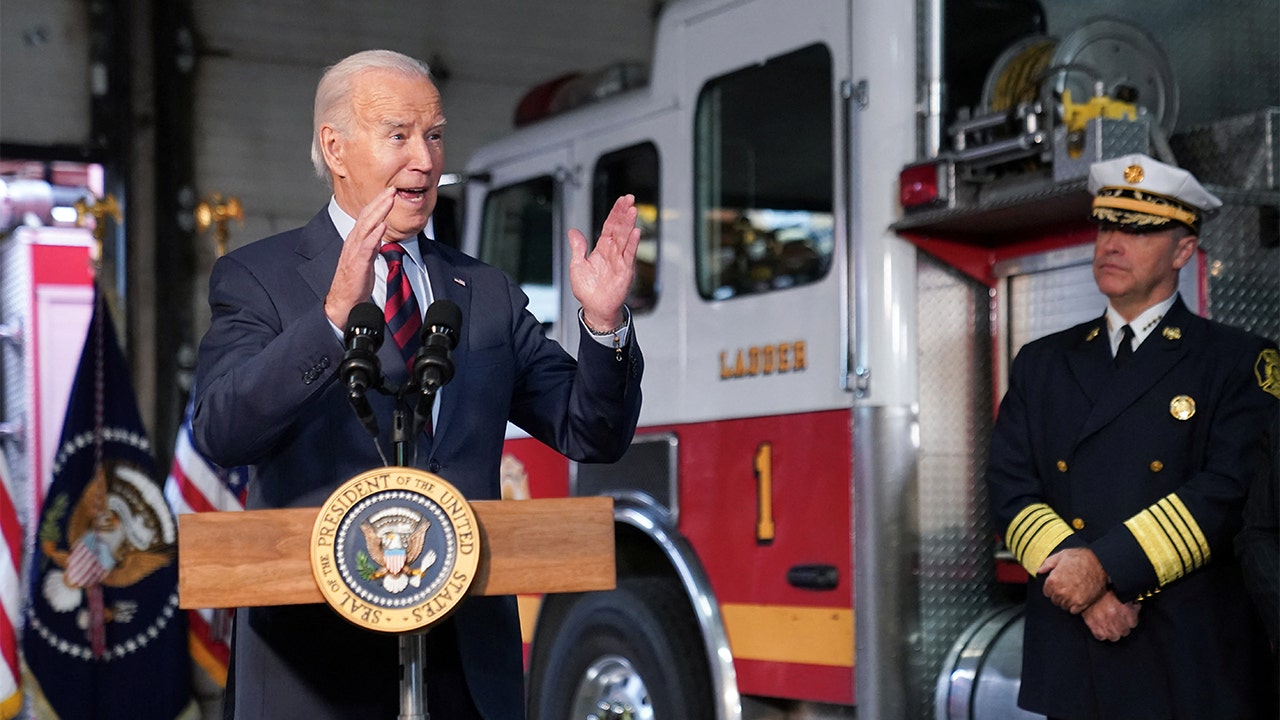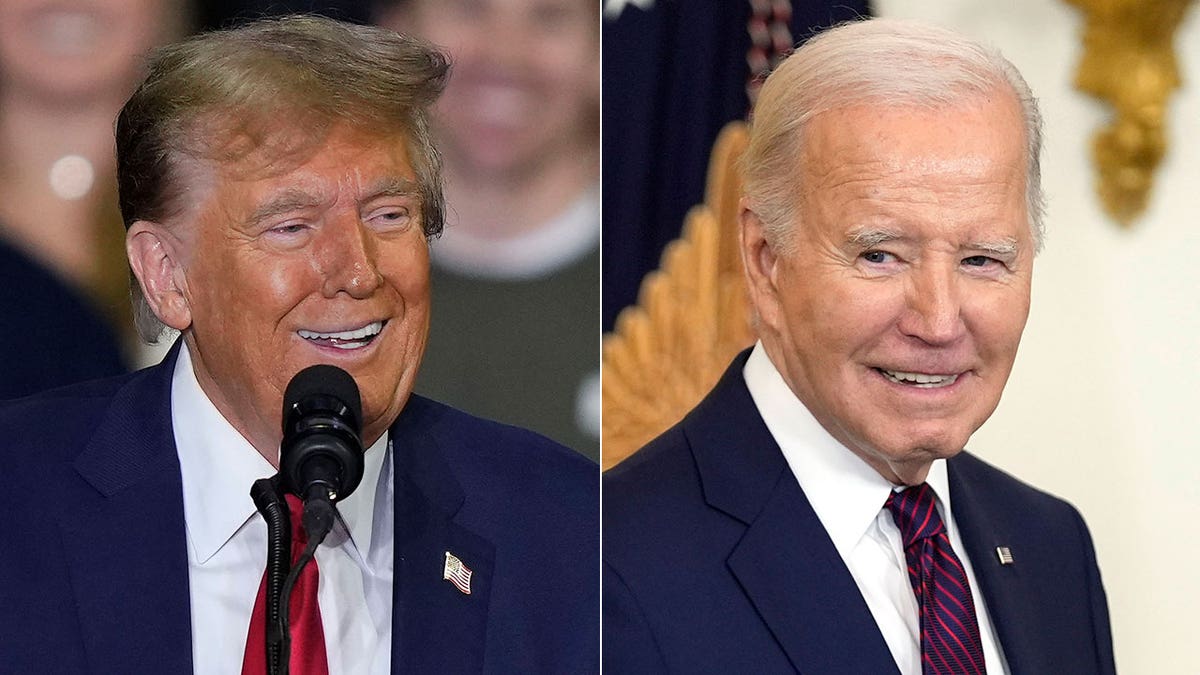Court Blocks Trump's Bid To Fire Biden Aide: A Deep Dive Into The Political Tug-of-War
Political drama just got juicier as the court has officially blocked Trump's bid to fire a key Biden aide. This legal twist is sending shockwaves through Washington and beyond. Brace yourself for a rollercoaster of power plays, legal battles, and political maneuvering. This isn’t just another day in the Beltway—it’s a critical moment that could shape the future of executive authority and the balance of power in the U.S. government.
Let’s break it down for you. The decision by the court to block Trump's attempt to remove a Biden appointee is more than just a political chess move. It’s about principles, precedents, and the delicate dance between branches of government. This case isn’t just about one aide; it’s about the broader implications for how presidents wield their power and the extent to which they can influence the bureaucracy.
Think of it like this: Imagine you’re in a room with two kids arguing over a toy. One kid says, "It’s mine because I said so," while the other replies, "No, it’s mine because the rules say so." That’s kind of what’s happening here. Trump wants to flex his executive muscle, but the court is saying, "Not so fast." This is where the real drama unfolds.
Read also:Kim Chiu Husband The Untold Story Of Love Life And Everything In Between
Understanding the Court's Decision
The court’s ruling isn’t just some random decision. It’s rooted in legal precedent and constitutional principles. When the court blocks Trump's bid to fire Biden's aide, it’s essentially reinforcing the idea that executive power isn’t unlimited. This is a big deal because it sets a precedent that future presidents will have to respect. The judiciary is stepping in to ensure that the executive branch doesn’t overstep its bounds.
Here’s the kicker: the Biden aide in question isn’t just any ordinary employee. This person holds a position that’s crucial to the administration’s agenda. By blocking Trump’s attempt to remove them, the court is essentially saying, "Hey, you can’t just fire someone because you don’t like their boss." It’s about upholding the integrity of the system and ensuring that decisions are made based on merit, not personal vendettas.
Why This Case Matters
So, why should you care? Well, this case is about more than just one aide or one president. It’s about the future of governance in America. If the courts allow presidents to arbitrarily fire officials simply because they don’t align with their political ideology, it sets a dangerous precedent. The bureaucracy is supposed to be a neutral force that serves the public interest, not a tool for political gamesmanship.
- The court’s decision protects the independence of federal agencies.
- It ensures that qualified individuals can serve without fear of political retribution.
- It reinforces the principle of checks and balances enshrined in the Constitution.
Think about it. If every time a new president comes into office, they can fire anyone they don’t like, what happens to the expertise and continuity that’s so vital to effective governance? This decision is about safeguarding the integrity of the system and ensuring that the government operates in the best interests of the people.
The Backstory: Trump vs. Biden
To fully understand the significance of this case, you need to know the backstory. When Joe Biden took office, he brought with him a team of seasoned professionals who were tasked with implementing his agenda. One of these individuals was the aide in question, someone with years of experience in public service. Now, Trump, who has been a vocal critic of the Biden administration, wanted to remove this person, claiming that it was within his executive authority.
But here’s the thing: the Constitution doesn’t give presidents carte blanche to fire whoever they want. There are rules, procedures, and safeguards in place to prevent abuse of power. The court’s decision reflects a commitment to upholding these principles, even in the face of political pressure. It’s a reminder that no one, not even the president, is above the law.
Read also:Best Iot Device For Remote Ssh On Raspberry Pi Free Ndash The Ultimate Guide
Key Players in the Drama
Let’s talk about the key players in this drama. On one side, you have former President Donald Trump, who’s no stranger to controversy and legal battles. On the other side, you have President Joe Biden, who’s trying to navigate the complexities of governing in a deeply divided nation. And in the middle, you have the judiciary, which is tasked with ensuring that the system works as intended.
- Donald Trump: Known for his aggressive style and willingness to challenge the status quo.
- Joe Biden: Focused on restoring stability and rebuilding trust in government institutions.
- The Judiciary: Standing as a bulwark against executive overreach and protecting the rule of law.
This isn’t just a clash of personalities; it’s a battle of ideas and principles. It’s about what kind of government we want and how we ensure that it serves the people.
Legal Precedents and Constitutional Principles
The court’s decision is rooted in a long line of legal precedents and constitutional principles. One of the key principles at play here is the idea of separation of powers. The framers of the Constitution deliberately designed a system where no single branch of government could dominate the others. This is why the judiciary has the authority to check the actions of the executive branch.
Another important principle is the idea of due process. Just because a president wants to remove someone doesn’t mean they can do so without following proper procedures. The court’s decision ensures that these procedures are followed, protecting the rights of individuals and the integrity of the system.
What Does This Mean for the Future?
This case has significant implications for the future of governance in America. It sends a clear message that the judiciary will not hesitate to step in when the executive branch oversteps its bounds. It also reinforces the importance of having a strong, independent judiciary that’s willing to uphold the law, even in the face of political pressure.
Looking ahead, this decision could influence how future presidents approach personnel decisions. It may lead to more careful consideration of the legal and constitutional implications of firing federal employees. It also highlights the need for clear guidelines and procedures to ensure that decisions are made fairly and transparently.
Public Reaction and Political Fallout
So, how are people reacting to this decision? The response has been mixed, as you might expect. Supporters of the court’s decision are praising it as a victory for the rule of law and the integrity of government institutions. Critics, on the other hand, are accusing the judiciary of overreach and bias.
Politically, this case could have significant fallout. It may further polarize an already divided nation, with each side accusing the other of playing politics. However, it’s important to remember that the court’s decision is based on legal principles, not political considerations. The judiciary is supposed to be impartial, and this case is a testament to that commitment.
Lessons Learned
There are several key lessons to be learned from this case. First, the importance of checks and balances in a functioning democracy cannot be overstated. Second, the judiciary plays a crucial role in ensuring that the system works as intended. And third, the rule of law must always prevail over personal or political agendas.
As citizens, it’s our responsibility to stay informed and engaged. We need to understand the issues at stake and hold our leaders accountable. This case is a reminder that democracy is a fragile thing that requires constant vigilance and care.
Conclusion: What’s Next?
In conclusion, the court’s decision to block Trump's bid to fire a Biden aide is a significant moment in American politics. It reinforces the principles of separation of powers, due process, and the rule of law. It also highlights the importance of having a strong, independent judiciary that’s willing to stand up to executive overreach.
As we look to the future, it’s clear that this case will have lasting implications for how presidents wield their power and how the judiciary fulfills its role. It’s a reminder that democracy is a work in progress and that we all have a part to play in ensuring that it works for everyone.
So, what can you do? Stay informed, stay engaged, and don’t be afraid to speak up when you see something that doesn’t seem right. This is your government, and it’s up to you to make sure it works for you. And who knows? Maybe one day, you’ll be the one making the big decisions that shape the future of this great nation.
Table of Contents
- Court Blocks Trump's Bid to Fire Biden Aide: A Deep Dive into the Political Tug-of-War
- Understanding the Court's Decision
- Why This Case Matters
- The Backstory: Trump vs. Biden
- Key Players in the Drama
- Legal Precedents and Constitutional Principles
- What Does This Mean for the Future?
- Public Reaction and Political Fallout
- Lessons Learned
- Conclusion: What’s Next?
That’s all for now, folks. Thanks for sticking with me through this deep dive into the world of politics and law. Remember, knowledge is power, so keep learning and stay curious. And if you liked this article, don’t forget to share it with your friends and family. Together, we can make a difference!


